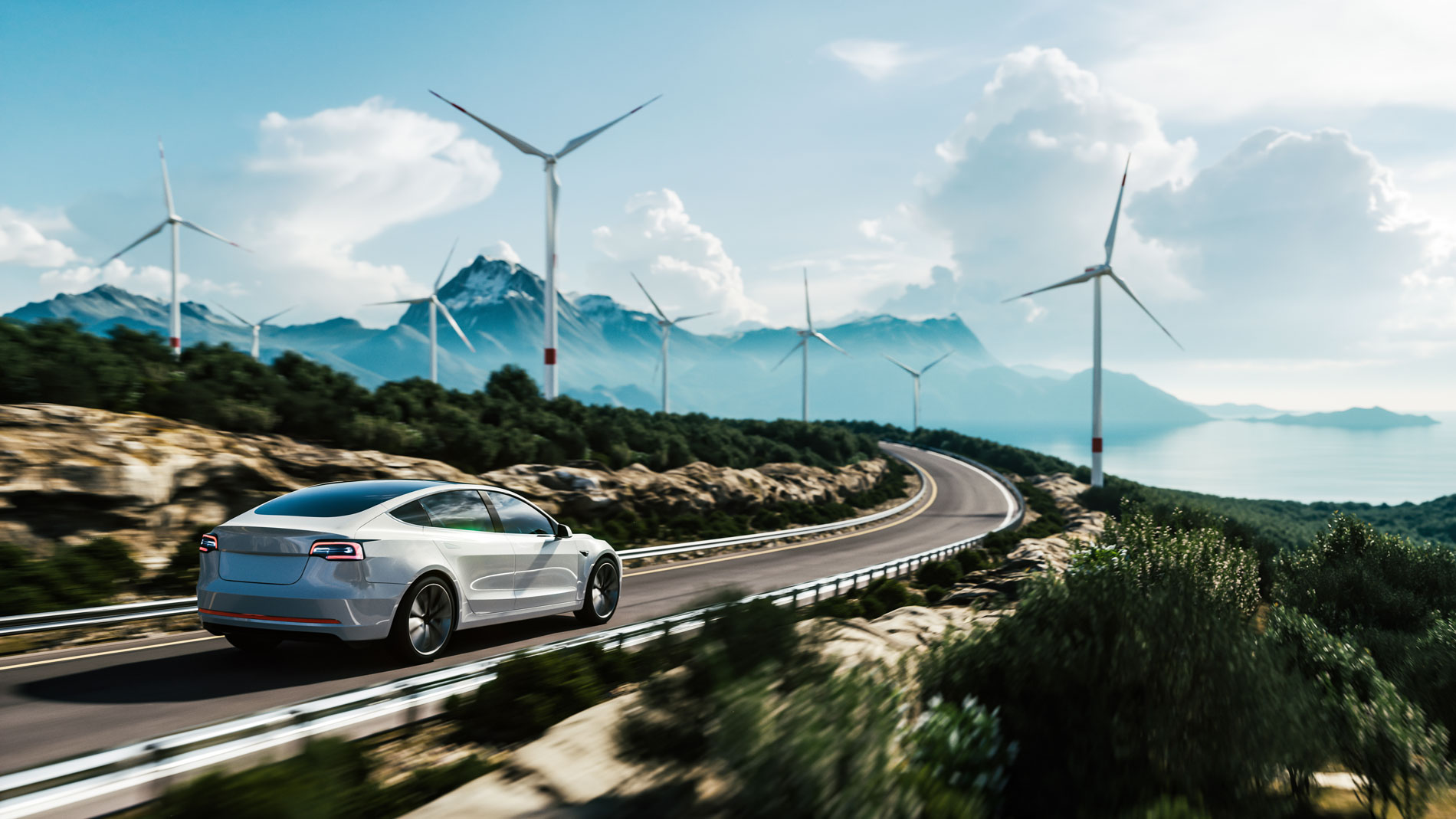*The information in this article is accurate from October 2021. EV grants are subject to change.
Low emission cars have become more popular on the UK market in recent years, especially as the government has begun to set stricter regulations on diesel vehicles that will be banned as early as 2030. Increasingly more global car manufacturers are investing in EV (electric vehicle) models and ranges. Modern EV’s are captured by the sleekness of the Audi e-tron, the futurism of BMW’s electromobility range, the efficiency of the Mercedes EQ range, or the uncompromisingly sporty Porsche Taycan. With so much variety on the EV marketplace, and range anxiety now firmly dispelled by constant innovation, it might just be the ideal time to convert to pure electric.
Between 2010 and 2020, researching electric cars felt like hopeful window-shopping. As demands for low-emission vehicle alternatives become more urgent, the market has been introduced to a line-up of practical, efficient and economic EV models. Importantly, financial support in the form of government grants now means that these electric cars are no longer a fantasy.
In our guide to UK government electric car grants, we help buyers understand how they can take advantage of financial relief schemes to make the long-awaited swap from diesel to pure electric.
or call us on 0208 329 1150
With the help of a government grant, you can:
- Claim a reward as a buyer for a £2,500 reduction on the cost of an EV
- Get an electric car charging point installed in your home
- Financial support will vary depending on the electric car you drive (applicable to EVs costing less than £35,000)
Does the UK Government Give Grants for Electric Cars?
Electric car grants are available to buyers in the UK and are rewarded by the Department of Transport’s and Department for Business, Energy, and Industrial Strategy’s Office for Zero Emission Vehicles (or OZEV). These grants are designed to make it more affordable for to own an electric vehicle.
Compared to the market value of an equivalent diesel or petrol car, an electric vehicle can be more expensive because of its parts. The large lithium-ion battery pack used in the manufacture of EV’s, for example, makes up for roughly one-third of a vehicle’s total price. But these prices are predicted to decline over the coming years and the market price for an EV will soon be the same as other diesel or petrol cars.
The fanfare around Tesla, and the recent investment from traditional automakers in electric mobility, would suggest that the EV market is no longer viewed upon as sceptically. In early October 2021, the UK recorded its highest growth in the uptake of the BEV (battery electric vehicle) and EV market, despite chip shortages. It’s even predicted that, by as soon as 2023, EV’s could take over the majority of sales.
In the last decade, the fast adoption of EV’s has become a global phenomenon. Amongst other countries with low-emission goals, the UK ranks highly for plug-in cars on the roads. Comparatively, the likes of Norway and Germany are remodelling what a nation with a dominating low-emission car usage could look like.

How Much Can You Get with an Electric Car Grant in the UK?
Even thought the worth of an electric car grant has fallen, it is still rewarding and affordable to transition over to electric in 2021. The Plug-In Car Grant (PICG) was first introduced in 2011, offering buyers up to 35% the value of a new vehicle (capped at a £5,000 saving). Nowadays, the electric car grant is limited to a saving limit of £2,500 but is caveated to EV’s costing less than £35,000.
Can You Can a Grant for Electric Vans and Motorbikes?
Similar to EV’s, buyers can make the swap over to all-electric vans and motorbikes with the financial support of government-backed grants in the UK. For all types of electric vehicles, the grants available have dropped in value over the years. But these EV grants can still be the difference between a costly all-electric van and one that’s affordable.
Here are the details:
- Small vans (less than 2.5 tonnes) can get up to 35% off list value (limited to £3,000)
- Bigger vans (more than 2.5 tonnes) are capped at £6,000.
Motorbikes, including mopeds, can qualify for the OZEV funded grant, with financial support limited to 20% the price of a vehicle (capped at £1,500).
How Do Electric Car Grants Work in the UK?
For buyers and sellers alike, it’s important to understand how the electric car grant will work in the sale of a qualifying EV.
The grant is payable to the seller, rather than the buyer of an EV.
So, how does the process work for a buyer and a dealer?
- For buyers, you do not need to worry about claiming money after purchasing an EV.
- For dealerships, you will need to claim the cash back from the OZEV after the completion of a sale on eligible stock. The offer of a grant should be reflected in the price of the car that is shown to the buyer.
EV’s will often be advertised with the original price and the value after the grant has been applied.
Which Electric Cars Can I Buy with a Grant?
The financial support available will depend on the vehicle. The UK government has identified 7 categories that explain the types of qualifying vehicles, including:
Approval of low-emission vehicles that qualify the EV grant must be identified by the UK government.
1. Qualifying Electric Cars
Qualifying vehicles must have CO2 emission of less than 50g/km and can travel at least 112km (or 70 miles) without any emissions. These include:
B
- BMW i3
- BMW i3s
C
- Citroen ë-C4
D
- DS 3 Crossback E-Tense – Prestige
- DS 3 Crossback E-Tense – Performance Line
F
- Fiat 500e
H
- Honda e
- Hyundai IONIQ Electric – Premium
- Hyundai IONIQ Electric – Premium SE
- Hyundai KONA Electric (39kWh) – SE Connect
- Hyundai KONA Electric (39kWh) – Premium
- Hyundai KONA Electric (64kWh) – Premium
K
- Kia e-Niro (39kWh) – 2
- Kia e-Niro (64kWh) – 2
- Kia Soul EV
M
- Mazda MX-30
- MG MG5 EV (52.5kWh)
- MG MG5 EV (61.1kWh)
- MG ZS EV
- MINI Electric
N
- Nissan e-NV200 (5 Seater)
- Nissan e-NV200 (7 Seater)
- Nissan Leaf
P
- Peugeot e-208
- Peugeot e-2008 – Active Premium
- Peugeot e-2008 – Allure
- Peugeot e-2008 – Allure Premium
R
- Renault ZOE
S
- SEAT Mii electric
- Skoda Citigo-e iV
- Skoda ENYAQ iV 60 Nav – ecoSuite
- Skoda ENYAQ iV 60 Nav – Lodge
- Skoda ENYAQ iV 60 Nav – Loft
- Skoda ENYAQ iV 60 Nav – Lounge
- Skoda ENYAQ iV 60 Nav – Suite
- Smart EQ fortwo
- Smart EQ forfour
V
- Vauxhall Corsa-e
- Vauxhall Mokka-e
- Vauxhall Vivaro-e Life – Combi
- Volkswagen e-Golf
- Volkswagen e-up!
- Volkswagen ID.3 Pro (58kWh 145PS) – Life
- Volkswagen ID.3 Pro Performance (52kWh 204PS) – Family
- Volkswagen ID.3 Pro Performance (58kWh 204PS) – Life
- Volkswagen ID.3 Pure (52kWh 148PS) – Family
- Volkswagen ID.3 Pure Performance (45kWh 150PS)
- Volkswagen ID.4 Pure (52kWh 148PS) – Life
2. Electric Motorbikes
Eligible motorbikes must have zero emissions and can travel at least 51km (or 30 miles) in-between charges. These include:
A
- Artisan ES1-Pro
- Artisan EV0 Monster
- Askoll eS3
- Askoll eSpro 70
- Askoll NGS3
B
- BMW C evolution
E
- Eccity 125
- Eccity 125+
- Eccity Model3
- EcoNeco Revival
- Ecooter E1R
- Ecooter E2
- Energica EGO
- Energica EsseEsse9
- Energica EVA
- Evoke Urban Classic
- Evoke Urban S
- Connect
- Hyundai KONA Electric (39kWh) – Premium
- Hyundai KONA Electric (64kWh) – Premium
H
- Harley-Davidson LiveWire
- Horwin CR6
- Horwin EK3
N
- NIU NQi GT Pro Cargo
- NIU NQi GTS Pro
- NIU NQi GTS Sport
R
- Rieju NUUK
S
- Scutum Silence S02
- Silence S01
- Sunra Miku Super
- Sunra Robo-S
T
- THELMOCO Ultra
- Torrot Muvi
V
- Vmoto 100
- Vmoto 120
- Vmoto Super Soco CPX
- Vmoto Super Soco TC Max
- Voge ER10 Euro 5
Z
- Zero Motorcycles (all models)
- Zride Tiger X
3. Mopeds
Mopeds eligible for the grants are vehicles with zero emissions and that can travel up to at least 30km (or 19 miles) in-between charges. These include:
A
- Artisan EV2000
- Artisan JS2A
- Artisan P2 Utility
- Askoll eS1
- Askoll eS2
- Askoll eSpro 45
- Askoll NGS1
- Askoll NGS2
B
- Bilis LX04
- Bloova Delivery
- Bloova Retro
E
- Ecooter E1S
G
- GOVECS GO! T
H
- Horwin EK1
K
- Kollter ES1
L
- Lexmoto Cypher
- Lexmoto Impulse
N
- NIU M-Series
- NIU M+
- NIU N-Cargo
- NIU N-Series
- NIU NGT
- NIU NQi Pro
- NIU U-Series
- NIU UQi GT Pro
P
- Peugeot e-Ludix
R
- Rieju NUUK
S
- Sunra Miku Max
- Sunra Robo
- Sunra Roni
- Surron Light Bee
T
- THELMOCO Senda
- THELMOCO X-Tra
- THELMOCO Zen
- Torrot Muvi City
U
- UBCO 2×2 ADV
- UGBEST e-City
V
- Vespa Elettrica
- Vmoto Super Soco CUX
- Vmoto Super Soco TC
- Vmoto Super Soco TS1200R
- Vmoto Super Soco TSX
Y
- Yadea C1S (Euro 5)
- Yadea G5
- Yadea S-Like
4. Small Vans
These vehicles weigh less than 2,500kg, have CO2 emissions that fall below 50g/km, and can travel at least 96km (or 60 miles).
C
- Citroen e-Berlingo
M
- Maxus eDeliver 3 (short wheelbase variants)
N
- Nissan e-NV200
- Nissan Voltia
P
- Peugeot e-Partner
R
- Renault Kangoo ZE
- Renault Zoe Van
5. Large Vans
These vehicles weigh between 2,500kg to 3,500kg gross weight, and have CO2 emissions below 50g/km, can travel a minimum of 96km (or 60 miles).
B
- BD Auto eTraffic
- BD Auto eDucato (3.5 tonnes)
C
- Citroen e-Dispatch
F
- Fiat e-Ducato
L
- LEVC VN5
- LDV EV80
M
- MAN eTGE
- Maxus eDeliver 3
- Maxus eDeliver 9
- Mercedes-Benz eVito
- Mercedes eSprinter
P
- Peugeot e-Expert
R
- Renault Master ZE (3.1 and 3.5 tonnes)
- Renault Trucks Master ZE ,
T
- Toyota Proace Electric
V
- Vauxhall Vivaro-e
- Volkswagen ABT e-Transporter
6. Electric Taxis
Must be purpose-built taxis, where CO2 emissions fall below 50g/km and can travel up to 112km (or 70 miles).
D
- Dynamo Taxi
L
- LEVC TX
7. Electric Trucks
These vehicles must weigh between 3,500kg and 12,000kg gross weight, have CO2 that falls below 50% equivalent of conventional Euro VI vehicle (at the same capacity). They must also travel 96km (or 60 miles).
B
- BD Auto eDucato (4.25 tonnes)
F
- Fiat e-Ducato (N2)
- FUSO eCanter
M
- Maxus eDeliver 9 (N2)
P
- Paneltex Z75

Are Business Benefits Available for Electric Vehicles?
Government grants are available in the UK to help businesses transition to electric cars. Here are the schemes open to businesses:
100% First Year Allowance (FYA)
A business is eligible to claim 100% first year allowance on a new low emissions vehicle, such as an electric car or van.
This incentive enables businesses to expense the costs of new electric cars against their taxable profit.
Under FYA, you can claim 100% deduction on only the first year of your purchase of a new electric vehicle.
This is claimable within your tax return.
Reduced BiK (Benefit in Kind) Tax
Employees can claim benefits or perks in addition to their salary. Depending on how a car used, there may be a BIK contribution.
The BIK percentage banding will depend on CO2 emissions and the P11D value.
Until 2025, businesses can apply for reduced BiK tax. The final cost will, however, depend on the car model and the tax year.
Changes to this rule are included in the roadmap to retiring the sale of diesel cars and vans by 2030.
1A National Insurance Contributions
If a company supplies employees with vehicles for work purposes, they will have to pay to Class 1A National Insurance contributions (NICs).
The amount you pay is dependent on the following information:
- The CO2 emissions
- P11D value
Businesses transitioning to all low-emission vehicles are predicted to save up to £2,000 over four years when compared to the same price for running diesel vehicles.
Workplace Charge Scheme
Regulated by the UK government, the Workplace Charging Scheme (WCS) offers financial support to businesses that install electric car charging stations within their facilities. As a voucher-based initiative, the WCS helps by covering associated costs with purchase and installation up to 75%.
An overview of the WCS:
- A limit of £350 per charger
- A maximum of 40 charge points
- A voucher is valid within 180 days
To claim the benefit, a certified WCS installer must fit your charging point, before a business can then claim a reimbursement.
Do London Congestion Charges Still Apply?
If you travel to a major city like London, your vehicle could be impacted by the London Congestion Charge. The zone is active between 07:00 and 22:00 every day (with the exception of December 25th).
The current London Congestion Charge is £15 daily.
There are reduced charges for low-emission vehicles available under the Ultra-Low Emissions Discount (ULED), scheduled to change to the Vehicle Cleaner Discount.
Under new rules, low-emission vehicles cam claim exemption to these rules. To check the eligibility of your vehicle and its current CO2 emissions, check your V5C handbook.
The Timeline of Congestion Changes
Between 25th October 2021 and 24th December 2025:
Unless you drive a pure electric vehicle, you won’t qualify for the discount. That means other hybrid models will still pay the London Congestion Charge.
After 24th December 2025:
The Cleaner Vehicle Discount expires. All drivers will have to pay this discount, unless they are eligible for a different exemption.
The New Congestion Rules
From 24th October 2021, vehicles can claim a 100% discount if:
- They meet the Euro 6 emission standard
- Emissions fall under 76g/km of CO2
- Can drive for 20 miles without emissions
Government Electric Car Grant FAQs
Are You Converting to Electric?
If you’re thinking of investing in an EV, make sure you drive on a valid and accurate insurance policy. Without one, you could be driving illegally, and this will risk your EV.
Speak with our specialists’ teams at Keith Michaels today. We have 30 years of experience insuring cars, including policies for EV’s. We arrange the competitive insurance to help keep vehicle owners confidently on the road.


